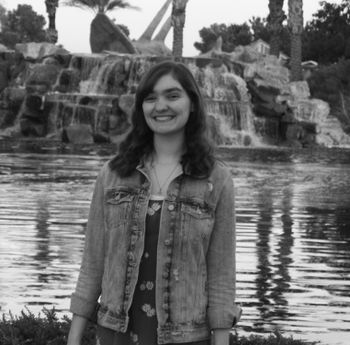'Transformative justice'? USC campus safety proposals tout 'equity,' 'intersectionality.'
USC’s Department of Public Safety Community Advisory Board recently published a report offering recommendations to reform campus safety.
Suggestions include a public policy statement on racial profiling, and transferring responsibility for mental health crises and homelessness from campus security to other departments.
University of Southern California’s Department of Public Safety Community Advisory Board published an 80-page report this summer that aims to make campus safety “equitably distributed.”
Safety, as defined by the Community Advisory Board (CAB) in its July document, is a “life that is free from experiencing crime” and an experience “free of being falsely targeted as suspicious, threatening or not belonging to our community.”
The report, which took 10 months to complete and sought input from over 700 people, contains 43 “pillar recommendations,” which include: transferring responsibility for mental health crisis and homelessness to other university departments; adopting academic policies that allow racially profiled students to alleviate stress through academic assistance and deferral of assignments; and crafting a public policy statement “about the seriousness of racial profiling by DPS.”
[RELATED: UPenn police reform downplays ‘value’ of crime reduction in violent neighborhood]
The report also recommends the creation of an Independent Department of Public Safety (DPS) Oversight Body, a board that will advise the DPS annual budget, review complaints, and assist “at a minimum” in certain cases with “practices of transformative justice.”
Transformative justice, according to the article cited on page 24 of the report, considers societal issues like oppression and inequity as factors of interpersonal conflict and is “explicitly opposed to helping someone get arrested, imprisoned, fired from their job, repressed, or oppressed.”
“While restorative justice only addresses the specific conflict between the victim and offender, transformative justice strives to use the conflict as an opportunity to address larger socio-political injustices,” the article explains.
[RELATED: UMN prof opposes school hiring police ‘in the city of George Floyd Uprising’]
CAB’s report also claims to be an “intersectionality-based policy analysis.” In Appendix 6: Methodology, the authors state that intersectionality “helped us design an independent approach to understanding what we heard.”
“Over the past 30 years, intersectionality has emerged as a key analytical framework for understanding how power dynamics affect people’s interactions with institutional systems like law enforcement,” the report says.
USC’s CAB, which was created last year by USC President Carol L. Folt in response to conversations around George Floyd, according to USCNews. The body is also co-chaired by USC Dean’s Professor of Political Science and Gender Studies Ange-Marie Hancock Alfaro and Price School of Public Policy professor Erroll Southers.
Campus Reform reached out to CAB board co-chairs Erroll G. Southers and Ange-Marie Hancock Alfaro as well as USC for comment, but did not receive a response in time for publication.
Follow the author of this article on Twitter @katesrichardson.

